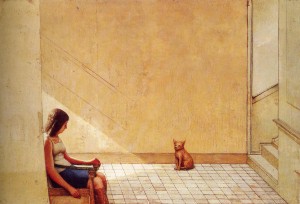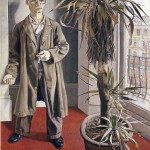Introduction
Since the Paleolithic era, each stage of human evolution has been conditioned by the dominance of a different type of institution, which has determined the way people perceive their relationships and the society they can establish. Understanding the type of institutions that have shaped our society, makes easier to understand the reasons of our problems and the way we are.
In the upcoming lines we will try to expose, in a nonacademic way, the link between institutions and individuals. Through this connection we expect to achieve a better understanding about the causes of the current crisis, which we do not consider it to be an isolated thing, but part of a more global and systemic crisis which began towards the end of the nineteen-century, as we will try to expose on the following lines.
But before we start talking about persons and its societies, is important for us to state what we mean by Person and its difference with a Human being. Being Human means to belong to one specie, the scientific name of which is «Homo Sapiens»; part of the «Hominidae» family. Being a Person is a peculiarity of human beings that transcends its own biological or physical definition because it’s a feature that does not finish in the outer part of the human skin.
One last remark. This article exposes the reasons and causes of the current crisis, but it does not provided any solution, neither offers a proposal for future policies against the crisis. We will discuss these aspects in a separate paper.
A person is the expression of an Inner Culture, an Outer Culture and the net of social relations in which the person is involved.
This sentence means that everybody has a consciousness of himself, which is the result of the society in which that person was born and it’s composed of everything that this person has learned plus all that has been forgotten. This knowledge from the past, that has shaped the way the person looks at the present, is what we call Inner Culture.
At the same time, we all live in a society made up of lots of different cultural universes, which we interact in our daily lives and that we use as a framework for planning the future. This knowledge and knowhow of the present moment is what helps a person to plan ahead the near and far away future. That’s what we call Outer Culture.
Besides, we cannot consider “Person” someone who has never been affected by the presence of other people; like his relatives, his children, colleagues, enemies, friends, parents, couples, etc. Every relationship that we establish with another person also defines part of what we are. A person immune to relations with other human beings, someone who feels nothing, may be human, but it cannot be considered a person. So feelings and bonds with other beings are part of what defines us as Person.
So, the way somebody acts and behaves depends a lot on his past, his expectations and his social network. We will return to these points later on.
We are social beings because of our biology. This biological feature impels us to be in touch with other humans. The way we establish contact with other humans is transmitting and receiving information to and from other humans. That is to say; setting up a communication.
The communication established with other human beings it’s what turns humans into persons, because throughout this act people may realize that there is something inside them and inside some beings, which transcends their physical appearance. Being conscious of its own self allows people to identify other selves, to compare and to feel that «something» -that has no physical appearance- exists and that «something» may modify the other person behavior. Which matters a lot when you you are in front of somebody and want to know what it is that the other one is going to do next.
The information that the act of communication between people conveys is made out of two different components: a rational part and an emotional part. When a person really understands these two parts, this person has the minimum information to decide whether to trust or run away from the other person. In a wild and primitive world that was very important. Nobody wants to be somebody else lunch but to be able to rely on another one had a great advantage; you may survive longer. When there is confidence between two persons they can protect themselves in a better way, work together, sleep protected and adopt altruistic behaviors. Is part of human nature the need to seek this whole knowledge (rational plus emotional) because people sense that staying together they will have more chances to survive. To live alone is very hard.
When knowledge allows people to trust each other, they begin to join and work together. Nothing inside a group can function without the previous trustfulness that arises from the knowledge of each other. Get ride of knowledge between people and confidence will vanish. Doesn’t matter if it’s a modern or primitive society, without trust people will become suspicious and distrust everything, and society will have to resort to force or other means of pressure to avoid the group disintegration. So, is trust what creates society, not all the other way around. And trust is triggered by emotions.


